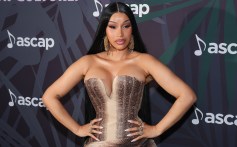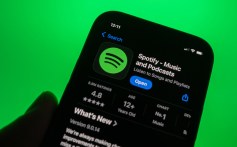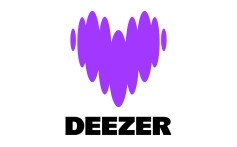Business
Page: 31
Trending on Billboard The signing spree around Netflix’s surprise hit KPop Demon Hunters continues with news that United Talent Agency has signed Kevin Woo for worldwide representation in all areas. Woo is a recognized K-pop singer, songwriter, and actor who covered the singing parts for Mystery Saja of The Saja Boys – in KPop Demon Hunters. […]
Trending on Billboard
For years, the Middle East has been regarded as the next hot music market – for talent, streaming and even the live business. But few countries there have modern collective management organizations that can take in and pay out royalties for performing rights or mechanical rights on the publishing side, or neighboring rights when recordings are used on radio or television or in bars or restaurants. On Oct. 23, the start-up Music Nation, which has a partnership with BMI, will begin collecting for those rights in the United Arab Emirates, which includes Dubai and Abu Dhabi – and it will not be the only player in the market.
Related
The UAE’s 2021 update of copyright law established public performance and neighboring rights in the country. Since then, the UAE has given permits to two collection organizations: Music Nation and the Emirates Music Rights Association (EMRA), which has the backing of some foreign societies, including SACEM, and plans to operate as a nonprofit. (A third company has been collecting royalties for several years.) Music Nation, which is technically a Rights Management Entity (RME), is a private company. It has a partnership with BMI, which gives it access to important U.S. repertoire, and it has a deal with SoundExchange to provide neighboring rights administration, so it can license both publishing and neighboring rights for the use of recordings.
“With Music Nation’s technology and a leadership team that understands both the UAE’s cultural fabric and global music operations, we’re delivering a simple, transparent and modern licensing solution that easily licenses businesses and quickly pays creators,” said Music Nation founder and chairwoman Rasha Khalifa Al Mubarak.
The executive team includes CEO Amer M. Samhoun, COO James K. Petrie and chief creative officer Ali Dee.
Rasha Khalifa Al Mubarak
The launch of Music Nation is the first international partnership of its kind for BMI, after that organization shifted to operating as a for-profit company backed by private equity.
It also represents the opening of a potentially important new market, since the UAE has said it is making the music business and the creative industries an economic priority, and Saudi Arabia is moving in the same direction. The markets are different, however. Foreigners make up about 88% of the population in the UAE, with significant numbers coming from elsewhere in the Middle East, the U.S. and Europe, India and the Philippines. Anglo-American songs and recordings are said to be popular, which means that the country could generate significant royalties for ASCAP, BMI and the UK CMO PRS for Music.
There will be competition, however. As a nonprofit in the traditional European model, EMRA has been championed by SACEM. Since 2020, the UAE has also had another RME, ESMAA, a subsidiary of PopArabia, which is majority-owned by Reservoir Media and run by Hussain Yoosuf, who goes by the nickname “Spek.” Although ESMAA does not have a permit to operate as a collective management organization under the UAE copyright law, it has an Abu Dhabi business license for rights management that allows it to collect and distribute royalties. Right now, it also has more reciprocal agreements in place than its competitors, including with PRS, GEMA (the German CMO) and STIM (Sweden).
Both Music Nation and EMRA will presumably pursue deals with those entities, as well as others, and the market could get very competitive.
Trending on Billboard
Singer-songwriter Dalton Davis has signed a label deal with MCA/Republic Records. The North Carolina native, who is managed by Alex Lunt at Type A/The Familie, just released his new song, “Cows in the Front Yard.”
“The word that is often used to describe Dalton is ‘unique.’ He has a rare ability to blend timeless country storytelling with a modern edge that feels completely his own,” MCA president/CEO Mike Harris tells Billboard in a statement. “His songs are rooted in authenticity, and you can hear both the grit of his experiences and the heart behind his perspective. At MCA, we’ve always prided ourselves on championing artists who define eras and set the standard for what’s next. Dalton has that same kind of undeniable voice and vision — he’s not chasing a trend, he’s carving out a lane that feels fresh but also true to the heritage of our roster.”
Related
Of “Cows in the Front Yard,” Davis said the inspiration came from “a life of having less and wishing for more. I remember being in middle school when Rich Boy released the song ‘Throw some D’s’ and thinking to myself, ‘One day, I’ll be rich enough to put some fresh rims on a box Chevy.’ Now at 30 years old ‘Cows In The Front Yard’ is my ‘Throw Some D’s,’ my redneck dreams coming to fruition while still hoping and dreaming for more.”
Davis’s journey has taken him from being adopted by touring Gospel artists, to working with hip-hop engineers and producers. He’s opened concerts for artists including Midland, Ashley McBryde and Dwight Yoakam, and recently relocated to Nashville, following years spent refining his sound in Chattanooga, Tenn.
“Gospel music and Hip-Hop have played a major role alongside country music in the shaping of my artistry and I will forever be thankful for that,” Davis says. “From Gospel music I learned to write congregational music where a listener can find inspiration and sing along with you by the second chorus. From Hip-Hop, I learned to write conversational music that could be sung or read aloud in a conversation with a friend and fit fine in either setting. ‘Cows In The Front Yard’ is the perfect example of me bringing those together through the country lens that I sing and see life through.”
Related
His new song builds upon previously released tracks including “Sit Crooked,” “Blue Ridge Sky” and “So Far So Good,” which were released independently.
“The end goal is to make records that people from two different walks of life can pull up to a stop light jamming out to my music and neither party feels like they have to turn down the record,” Davis says.
Dalton Davis
Matthew Simmons
Trending on Billboard Another day, another flood of music industry deals. How does one keep track? In an effort to provide an overview of the latest acquisitions, mergers, joint ventures, licensing agreements and more, Billboard publishes a list of all of the latest pacts that have hit our radar every other Thursday. Legacy management and […]
Trending on Billboard On Wednesday (Oct. 22), around fifteen employees in U.S. and Latin American music roles at TikTok and ByteDance across multiple territories were told their positions were terminated, according to sources close to the matter. Two sources say a number of those impacted will have their accounts on the company’s business management platform, […]
Trending on Billboard
Gains from self-paying subscribers almost equally offset losses from partnerships as French music streaming company Deezer’s revenue fell 0.9% to 131.4 million euros ($154 million) in the third quarter, the company announced Thursday (Oct. 23).
“Subscriber growth in France has accelerated for a third consecutive quarter, confirming the positive impact of our differentiation initiatives in our home market,” CEO Alexis Lanternier said in a statement. “In the rest of the world, subscription numbers in the Direct segment are also picking up pace, reflecting the quality of our service and the appeal of our brand as we champion transparency and fairness in music streaming.
Related
Revenue from partnerships fell 12.6% to 35.6 million euros ($42 million) and subscribers from these partnerships dropped 24.5% from the prior-year quarter. Deezer powers music streaming platforms for numerous companies globally and counts these partnership subscribers separately from subscribers who pay directly. The company attributed the loss in its partnerships business to “the residual impact” of a business model shift by Mercado Libre, a Latin America e-commerce company that partnered with Deezer in 2023. A focus on higher average revenue per user (ARPU) also contributed to the decline in partnership subscribers, the company said.
Direct subscribers grew in number to 5.5 million, up nearly 10%, and direct subscription revenue increased 1.6% to 87.9 million euros ($103 million). France accounted for 3.7 million of those direct subscribers, an 11.7% increase from the prior-year period, which the company attributed to “good performance” of family plans. Direct subscribers from the rest of the world rose 6.1% to 1.8 million.
ARPU from direct subscribers fell nearly 5% to 5.4 euros ($6.31) per month. Partnership ARPU rose 6% to 3.1 euros ($3.62) per month.
Related
Other revenue, which consists of advertising and ancillary revenue, rose 17.4% to 7.9 million euros ($9.2 million). Deezer said the improvement “mainly reflected the performance of the white labelling solutions for hardware / media partners.”
While relatively small compared to the likes of Spotify and Apple Music, Deezer has attempted to separate itself from its competitors by making combating AI music a business priority. In September, the company revealed that it detected the delivery of over 30,000 fully AI-generated tracks each day. That accounts for 28% of all daily track uploads, up from 18% in April and 10% in January. These fully AI-generated tracks are eliminated from Deezer’s algorithmic recommendations and excluded from editorial playlists.
Looking ahead, Deezer confirmed its full-year guidance in which it expects positive adjusted earnings before interest, taxes, depreciation and amortization (EBITDA) and positive free cash flow for the second consecutive year.
Trending on Billboard
The legal battle between A$AP Relli and A$AP Rocky is continuing on despite Rocky’s acquittal on charges of shooting his former friend and associate this past February.
On Thursday (Oct. 23), a judge in Los Angeles refused to throw out the civil defamation lawsuit brought by Relli (Terrell Ephron) stemming from the alleged altercation with Rocky (Rakim Mayers) near a Hollywood hotel in 2021.
Related
Relli alleges that Rocky fired a handgun at him twice during their argument, while Rocky maintains that the “weapon” was a prop gun filled with blanks. Prosecutors charged Rocky with two felony assault counts in 2022, but he was acquitted of both criminal charges following a sensational trial this year.
Still, Relli is continuing to claim that Rocky shot him in a civil lawsuit that he brought around the same time as his former A$AP Mob collaborator’s arrest. That case, in which Relli seeks financial damages from Rocky for assault, battery and emotional distress, is scheduled to go to trial in January.
Relli separately brought a defamation lawsuit in 2023 against both Rocky and his criminal defense lawyer, Joe Tacopina. Relli says the duo smeared his name when Tacopina gave press interviews calling Relli’s shooting claims “extortion” and a “get-rich-quick-scheme.”
Rocky and Tacopina sought to get the defamation suit thrown out under California’s anti-SLAPP statute, which guards against frivolous litigation that threatens free speech. But Judge Randolph M. Hammock ruled Thursday that Relli’s slander claims don’t meet this standard for dismissal.
Related
Judge Hammock said Rocky and Tacopina cannot rely on a principle known as the litigation privilege, which provides a complete free speech shield for statements made in court proceedings, because the lawyer’s media interviews were given “to shape the public opinion” rather than advance any legal position. The judge also determined that Relli’s defamation claim is not “meritless” under the anti-SLAPP guardrails.
“For purposes of this motion, plaintiff has established all elements of his defamation claims,” wrote the judge. “Plaintiff submits evidence that Tacopina published statements to media outlets, in essence contending that plaintiff fabricated the incident with Mayers then filed the lawsuit to force a payout.”
“Plaintiff refutes this in his declaration, as he attests that Mayers fired a handgun and struck him in the hand,” continues Judge Hammock’s decision. “He establishes that Tacopina’s statements were defamatory, as they labeled Ephron a liar and extortionist. Finally, Ephron established that these statements caused him damages. For purposes of this motion, plaintiff has met his burden.”
Relli has not actually won on any defamation claims yet, but the lawsuit moved past a major obstacle in Thursday’s ruling. Now, the matter will continue forward through evidence discovery and toward a possible trial.
Relli’s lawyers declined to comment on Thursday. Reps for Rocky and Tacopina did not immediately return requests for comment.

Trending on Billboard
A Washington, D.C., man who was detained after playing the Evil Empire music from Star Wars to protest National Guard troops is suing the government for violating his constitutional rights.
In a lawsuit filed Thursday (Oct. 23), Sam O’Hara claims that he was wrongfully handcuffed and detained for playing “The Imperial March” — John Williams’ iconic villain music from the sci-fi franchise — as he recorded videos of the troops that he later posted to TikTok.
Related
The case, filed by the American Civil Liberties Union (ACLU), claims the brief detention violated O’Hara’s right to peacefully protest under the U.S. Constitution’s First Amendment.
“The law might have tolerated government conduct of this sort a long time ago in a galaxy far, far away,” the ACLU wrote, playing on the famed opening text from Star Wars. “But in the here and now, the First Amendment bars government officials from shutting down peaceful protests.”
“The Imperial March (Darth Vader’s Theme),” written by Williams, first appeared in The Empire Strikes Back, the 1980 sequel to the original Star Wars. The famed composer’s score for the film reached the No. 4 spot on the Billboard 200 in July 1980, eventually spending 28 weeks on the chart.
“In the Star Wars franchise, The Imperial March is the music that plays when Darth Vader or other dark forces enter a scene or succeed in their dastardly plans,” O’Hara’s lawyers write. “It is also the soundtrack of Sam O’Hara’s protest against the National Guard deployment in D.C.”
Related
President Donald Trump declared a “crime emergency” in Washington, D.C., in August and ordered the takeover of law enforcement in the city, with National Guard troops arriving in the capital shortly thereafter. The move, along with other military deployments to American cities, has been deeply controversial and led to widespread protests.
O’Hara, who was “deeply concerned about the normalization of troops patrolling D.C. neighborhoods,” began protesting their presence in his city by walking behind them as they marched through the streets — and by playing a score recognized globally as a theme for tyranny.
“Using his phone and sometimes a small speaker, he played The Imperial March as he walked, keeping the music at a volume that was audible but not blaring,” the ACLU’s lawyers write. “Mr. O’Hara recorded the encounters and posted the videos on his TikTok account, where millions of people have viewed them.”
Related
According to O’Hara, most National Guardsmen “ignored Mr. O’Hara, and a few smiled or laughed,” but one was “not amused by this satire.” The trooper, Sgt. Devon Beck, allegedly turned around and threatened to call in local police to “handle” him if he kept playing the song. When O’Hara kept going, he says Metropolitan Police Department officers quickly arrived and put him in cuffs, shutting down his protest.
O’Hara says the cuffs were placed so tightly that they left marks on his wrists, and were not loosened after he complained. He also says his detention was “needlessly” prolonged before he was eventually released 15 to 20 minutes later.
In technical terms, the lawsuit names Beck, four D.C. police officers, and the D.C. District Attorney as defendants. It accuses them of violating both the First Amendment and the Fourth Amendment, which guards against unreasonable searches and seizures.

Trending on Billboard
Mike Weiss and David Melhado like to tell the story of when they first met. It was 2019, and UnitedMasters artist NLE Choppa had just released “Shotta Flow,” which would eventually become a top 40 hit on the Billboard Hot 100, and Weiss, UM’s head of A&R, was interviewing Melhado for the company’s head of artist marketing position.
For the meeting, Melhado “had put together a web chart that had ‘artist’s vision’ at the center, and then webbed out A&R, PR, marketing, digital and brands that started from the basis of understanding who the artist is, what their objectives are, what their core audience is and then [how] everything has to tie back to that,” Weiss recalls in a listening room at UM’s Brooklyn offices. “That was my playbook, and I had not seen anybody else draw it in the exact same way.”
Related
Weiss, 34, and Melhado, 41, come from different backgrounds: Weiss is third-generation music business, after his father Barry and his grandfather Hy, and was effectively raised in the industry; Melhado got his start working for Jermaine Dupri‘s dad Michael Mauldin, building out the mid-2000s staple Scream Tour with artists like Bow Wow and Omarion. But they share a professional background in artist management — Weiss with Noah Cyrus and Labrinth; Melhado with Verse Simmonds and the producer Sak Pase — that has given them both a 360 worldview when it comes to artists’ careers, emphasizing building a brand and a catalog over chasing hits.
And at UnitedMasters — founded by veteran exec Steve Stoute, who runs the brand agency Translation, was an artist manager himself with Nas in the 1990s, and wrote the industry tome The Tanning of America in 2011 — the two are dedicated to doing just that. “We never made decisions based off, ‘This has to be a top 10 record, or we have to go to radio because we look to market share,’” Melhado says. “Because we’ve been consistent in our approach and made decisions that were best for the artists’ business, we’ve been able to see success and growth. We build brick by brick.”
UnitedMasters launched in 2017, in the midst of the distribution craze that exploded to serve the vast pipeline of artists that emerged in the DIY artistry world made possible by the streaming era and bedroom production tools. Many of those companies focused on scale and technology, mimicking the one-size-fits-all model developed by companies like TuneCore and Distrokid, which allowed anyone to upload and distribute an album for a set fee per year. Weiss and Melhado wanted to do something different.
“There hasn’t been a lot of [artist] development over the past 5-10 years,” Weiss says. “So we said, if everyone is going to be focused heavily on the A&R research teams, we’re going to find artists that we believe in and can develop. That was going to be our competitive edge.”
Related
Now, that focus is paying off, particularly after the two built a label business as the peak of a pyramid that encompasses DIY distribution at the base and a premium services tier in between, which has become the blueprint for the modern record company. Texas rapper BigXThaPlug‘s foray into country music was a massive success this year, yielding a top 5 Hot 100 single (“All The Way” feat. Bailey Zimmerman) and a top 10 Billboard 200 album; Floyymenor‘s “Gata Only” feat. Cris MJ won a Billboard Music Award for Top Latin Song of the Year in 2024; and partnerships with African super-producer Sarz and indie R&B singer and songwriter Brent Faiyaz have expanded their purview.
And now, as newly-minted co-heads of music at the company, Weiss and Melhado are leading the charge for all of it, staying ahead of the competition as the industry shifts towards their model. “It’s our job to always be changing and evolving,” says Weiss. “If the broader industry is doing what we set out to do, then that’s just validation that we’re on the right path.”
What was Steve Stoute doing at UnitedMasters that drew you to the company?
David Melhado: For me, it was new and he was bridging the gap between the brand world. When we came here it was very much a startup and the idea of being able to support artists at scale was attractive, but we knew it was going to be a challenge. He’s given us the space to fail fast and then pivot and try and take shots.
Mike Weiss: I was looking to be entrepreneurial and go somewhere where I could really help shape a business and touch everything. At that time, there were a number of key executives that were rolling out of the major systems and starting their own businesses that were having some early success. Making that bet on Steve that he was one of those people was a no brainer. But it also was the tech side of things I found really interesting as well, building a future of independence.
Related
Why did you want to build a label on top of the distribution business?
Melhado: We were doing these premium distribution deals, but labels were cherry picking all our acts. Lil Tecca, NLE Choppa, J.I. the Prince — as soon as they started to have a little bit of momentum the labels would come in because we didn’t have long term rights or a team that could really support them. So, that was the part of the argument to Steve: we have to change the way that we’re doing our deals. We have to really invest in the artists, and you’ve got to give us the ability to build the team. That was the turning point for us.
Weiss: We got to a point where we were saying, “We can identify talent and be successful with that talent, but what’s going to differentiate us from the majors if we don’t have the staff to really support that and take it to the next level?” A lot of companies in those early days of distribution were coming across that same problem — what’s the value of finding an amazing artist that’s going to develop into a superstar if you can’t be there when they’re a superstar? We said, Let’s build a label business and a team that can be competitive in terms of resources with the majors, but with the artist friendly deals of the distros. It was never a question of being the best distributor. It was, “Let’s be competitive with majors, and do it in a way that’s fair to artists.”
You guys had an advantage in being able to build a record label for this new era from scratch. How did you do it differently than what you would have seen at a traditional major?
Weiss: We said, what does development look like in the 2020s? Development is public, development is in the perspective of the fans. It’s similar in many ways to building a startup, which we have experience with now. You want to pivot quickly, you want to see what people are reacting to, you want to fail fast. You want to know what people are going to respond to and you want to start raw and authentic. And so we built A&R teams that could really get in the mix with artists. There are no longer gatekeepers that are going to press a button and all of a sudden your music is going to be everywhere and you’re going to be a breakout star. So we needed to put a team together that was wholly committed towards building something brick by brick from the ground up. And with that came the focus of constant progress, of being better today than we were yesterday, and making sure that whatever steps were taken were not in the pursuit of a hit record, but the pursuit of building an artist that has a foundation, a fan base, an audience that everything else can live within.
Related
One of your big success stories has been BigXThaPlug. How have you developed him through the years?
Melhado: When we first partnered with BigX in October 2021 he had 500 monthly listeners on Spotify. We took a really regional approach, working records in the clubs and trying to create an early groundswell, and did that same thing from a digital vantage point as well. We would release singles and then package them as an EP. Release more singles and then package it as an album. And we kept replicating that same process.
Weiss: The whole approach was consistency. The content mixed with the consistency just brought more and more eyeballs. You paired that with the localized approach to it and building a groundswell first that everything could rely on. For us, first week sales is not the barometer for anything. We’re not looking at the biggest moment and impact that we can possibly have week one that will jeopardize week 20. We’re focused on building an artist holistically and building that catalog.
Artists also need global reach. How did you guys approach that?
Weiss: The majors have companies in every territory. We’ve seen over the past two years that shift from a positive to a negative for the labels and a negative to a positive for us in that we have the ability to bring on whichever partner we want in whatever region. The team we would use in Germany for an Ekkstacy record would not be the same team that we should use for BigXThaPlug or FloyyMenor. So, we’re able to just bring in the independent partners within those specific regions that work directly for that specific artist. The approach has allowed us to have flexibility and bring in the right partners wherever it is internationally. Then as it came to finding international artists, the approach was similar — we just followed the talent. FloyyMenor, he was not a huge success at that point, but he was just buzzing in the scene. We saw a community being built around him and that real groundswell, which played into the way in which we already see and focus on developing acts.
Related
The culture of the business in Nashville is different than everywhere else. How did you guys move into the Nashville world for the BigXThaPlug album?
Weiss: The Red Sea parted for us on that. When we put out the “Texas” record, because it’s a country/hip-hop record already, we started hearing that Luke Combs and Morgan Wallen and Post Malone were fans. When he was still relatively unknown, the country community was actually the one community that was behind him. They welcomed him in with open arms. Dave and I went and sat with Charlie Handsome and talked about this idea of doing a country collaboration EP and he was down to give it a try. Then BigX posted an Instagram clip of “All The Way” with Bailey — people just went crazy. So the team went down to Nashville and met with every writer and producer. They all loved BigX because the artists loved BigX.
You share an office with Translation. How does that give you an advantage?
Melhado: Working with brands has been embedded in the DNA of UnitedMasters from the beginning. The early partnerships with the NBA and NBA 2K soundtrack; sync has been a part of the ways that we work with brands from day one. For an artist like BigX that has been very much a part of his story. One of the early brand deals that he got was creating the theme song for the XFL. I think it’s safe to say that we’re the only creative solutions company and creative agency that has a full blown music company and record label. That’s an important ingredient in the artist development story for us.
What does success look like for you guys?
Weiss: Success is when you see an artist that’s continuing to grow week over week, month over month, year over year. And the best way to do that is by building catalog rather than having peaks and spikes that are here today and gone tomorrow and then don’t really last the test of time in the digital era. Everyone talks nowadays about how catalog is the thing that is keeping the majors afloat. We don’t have a catalog to rely on and our goal is to build that.

Trending on Billboard
A lot is changing at Spotify. In recent weeks, the company announced its founder and CEO, Daniel Ek, is stepping down from the CEO post (he will stay on Spotify’s chairman); it announced plans to develop generative AI music models with the support of the music industry; it updated its AI policies; it finally launched lossless audio; it updated its free tier; it forged new deals with a number of top music companies; and the company rolled out a number of new features, like direct messaging and “Mix With Spotify.”
The changes are a lot to keep track of, so on this week’s episode of Billboard’s new music business podcast, On the Record w/ Kristin Robinson, Spotify’s global head of marketing and policy, music business, Sam Duboff, joins to explain how the company is evolving, from a static destination for music consumption to what he calls “a place where fans can experience the whole world of an artist.”
Related
Duboff is one of the executives who determines how Spotify will handle the growing presence of AI music on its platform. He also is key in the development of Spotify for Artists, the company’s hub for musicians that enables them to manage their artist profiles and connect with fans.
Below is an excerpt of Billboard’s wide-ranging conversation with Duboff on this week’s episode of On the Record, focusing on its treatment of AI music on the platform.
Watch or listen to the full episode of On the Record on YouTube, Spotify or Apple Podcasts here, or watch it below.
I wanted to hear a little bit more about the fact that y’all are developing generative AI with the consent of many players in the music industry. There isn’t much information out there, so what is going on?
Duboff: We have been hearing from artists and their teams for a few years now that merging music AI tech products don’t feel like they’re built for them, not built for the power of their businesses, their careers, their existing fan bases. So we recently announced we’re collaborating with some of our top industry partners, across major labels and indies, to collaboratively develop artist-first, responsible AI music products.
So what would that look like?
We want to do this in consultation with the industry. People talk to artists about it, songwriters about it, and it feels like a lot of principles about AI and music and what these should look like. It’s happening in real time. So we didn’t want to wait until we have a product ready for a big launch to start talking about how we’re going to build AI products. We want to talk now, while we see lots of other folks in the industry are investing in the space, to be clear about our principles and how we’re gonna work with the industry for any product we build. So we’re looking at four key principles we outlined.
Related
First, [we have forged] upfront agreements with the music industry. [We are] not using tons of music [without permission] and asking for forgiveness later. Second, we wanna make sure artists, songwriters, rights holders have agency and choice about how their music does or doesn’t participate in these tools. They should have control and choice around how fans can or can’t interact with the music using AI. Third, we will always have proper monetization and compensation built in. So artists, songwriters, right holders [are] always compensated for all uses of their work [and] properly credited transparently. We’ll have an eye towards building new revenue streams for the music industry, so not just splitting up the existing royalty pool. We think that could be really important for powering what the next stage of the music industry looks like. Fourth, and really important to us, when we think about our role right now in music, is we want to build AI music products that deepen existing artist-fan connections. With 700 million monthly listeners coming to Spotify already, to listen to their favorite artists, we can play this really unique role where we build tools and help fans go deeper with their favorite artists and connect with their favorite artists in new ways, and make sure AI tools aren’t there to kind of compete with artists or to try to replace human artistry.
I know it is still very preliminary, but you talked about how this will increase the connection between fans and artists. Tell me if I’m off base, but it kind of sounds more like Spotify is leaning towards AI-powered remixing of current songs, rather than a model that generates a new song from scratch, like Suno or Udio, right?
Yeah. I think we see our role as the biggest streaming home for professional artists today. We facilitate those connections between artists and fans through their music already. So we think we’re best positioned to help have AI power this next stage of the industry. In some ways, it’s just in that space of existing artists and connections and building on artists’ catalogs with their consent. Yeah, not tools that are built to compete or kind of siphon off [royalties] from parts of the industry.
Related
To me, this signals a shift for Spotify. Spotify has always been the final destination for listening. This now feels like it’s a more playful, interactive music creation tool. Do you see Spotify continuing to expand from being the place for static streaming?
Over the past few years, we’ve been evolving Spotify from a place that’s just about the music to giving artists all these tools to share the world around their music. So three, four or five years ago, on Spotify, you get an artist profile with some pictures and canvases [looping visuals paired to songs]. It was mostly just about the music, and then you’d have to go to social media or elsewhere to experience the artist’s broader world. Where we’ve been focusing is bringing in artist clips so that artists can share 30-second videos, sharing the meaning of their songs, music videos, live performance videos, which we’ve launched in 100 countries outside the U.S. We’re working to bring that to the U.S. [There are] countdown pages that build up your album release. You can sell your merch in advance. We’re seeing artists use that in really creative ways. So we’ve already been on this journey of making Spotify a place where fans can experience the whole world of an artist. These AI music principles are an extension of that philosophy.
Spotify has also recently updated its policies on AI music. This included a note that the service has removed “75 million spammy tracks.” I’ve seen some outlets post stories about this figure incorrectly, calling it 75 million AI tracks, but it feels like the word “spammy” is intentional, referring to both AI spam and human-made spam. Can you explain what Spotify meant by this?
We’ve definitely seen modern Gen AI tools increase the scale of spam, and so certainly AI played a role in this scale. Not so long ago, there weren’t even 75 million tracks on streaming services, and now, we’re removing that many, but yeah, we’re working to identify spam, regardless of whether AI’s part of the creative process or not.
Related
Spotify is also working with DDEX to create a standardized way to disclose exactly how AI is used in the music creation process. It feels like a step in the right direction to create a standard, but if I’m a bad actor, why would I self-disclose? I probably wouldn’t.
We see this as the first step. No matter what the long-term solution is going to be, of the system of incentives and deterrence that will get people to disclose, the starting point has to be shared language through the existing supply chain of music about what the formatting of that will be.
But I think you do see already a lot of artists, songwriters, producers, starting to talk about how they’re using AI more often. So you see the K-Pop Demon Hunters songwriter who talked about brainstorming with Chat-GPT when he wrote “Soda Pop” through to Brenda Lee using AI to translate “Rockin’ Around the Christmas Tree” into Spanish, but still her voice. It was so cool, but it may have been confusing for Spanish listeners, if they thought Brenda Lee or any artist spoke a language they don’t speak. Now, [with the DDEX partnership] it will be really cool for them to know transparently [exactly how AI was used.]
When Spotify came out with these policies, it did feel like a start, but I heard from some people that they felt it didn’t go far enough. So, what do you say to those who feel like it’s not going far enough?
It’s early days for AI tech. I know it feels like it’s moving fast, but consumption of AI-generated music’s insanely low. We have some time for artists, songwriters, producers to take the lead in figuring out how they want to use these tools. We don’t want to act like we know where AI music’s headed and exactly every policy and role we need to future-proof for the next two or three years. But also, we didn’t just want to wait and do nothing. Some areas we all can agree now that we need to act now, no matter where AI tech heads. We think it’s going to be necessary to have great systems in place to stamp out spam, deception, impersonation. So that’s our starting point. We try to be upfront. We see these as first, critical early steps. There’s more to come.
Related
French streaming service Deezer reported recently that 28% of daily uploaded songs are fully AI-generated. That’s a shockingly high number. At Spotify, have you seen the same figures?
AI detection tech isn’t really foolproof yet. You know, every streaming service has pretty much an integral catalog. We have no reason to disbelieve it’s a similar amount on any streaming service. That said, I think they shared the point that .5% of streams is all those songs were getting. We’ve tried a few different tactics to test that — different detection tech, testing out different proxies — to understand how much prompt-generated music may be listened to on Spotify, and we find it is way lower than .5% in the share of streams, in total consumption. So I know sometimes it feels scary when you see those upload percentages…but yeah, there’s a lot of uploads [of AI music.] We’re doing a lot of work to release that kind of spam, where there are mass uploads that can add up to those kinds of percentages, but keeping a close eye on the part that actually matters, which is, are listeners listening to it? Is it generating royalties?
Consumption being really low makes me think that it must be a burden on streaming services to hold all of this music, especially when no one’s listening to it. Would Spotify ever remove tracks that are just getting absolutely no traction?
I don’t think so. Whether they’re AI or otherwise, people upload their music to streaming services for all different reasons. I have family members that upload music to send to family and friends. That’s a great thing at Spotify, [where] we are focused on emerging and professional artists. Our policies are in service of professional artists and emerging artists on their way to that. So we take on the burden of how many songs are uploaded, and certainly the overwhelming majority of songs aren’t getting streamed much. I still think it’s really important for there to be this open outlet.
Related
Is this a cloud storage issue? I have no idea how big these songs are to hold onto.
Maybe someday, with AI scale, it will be.
Earlier this year, I spoke to Spotify’s global head of editorial, Sulinna Ong, and I asked her about whether or not she would ever forbid AI tracks from living on Spotify editorial playlists. She didn’t have a clear answer at that moment — it wasn’t a yes or a no, so I wanted to ask again. Could you ever imagine fully AI-generated tracks living on a Spotify playlist?
It’s a hard question, because I think we recognize AI music as a spectrum… I think what you’re getting at is completely prompt-generated music without any human input. Is there some world where listener behavior really changes, and there’s huge musical, cultural relevance from music that doesn’t spam, deceive or impersonate, but somehow finds an audience, [that] could make it on to a viral hits sort of playlist? I can’t speak for their team, but fundamentally, 100% of the focus of our editorial efforts is helping to identify, uplift [and] develop the careers of professional artists who are making amazing music. So it’s always hard to answer that question in absolutes, but certainly that’s not the focus of anyone at Spotify, or, I think, any streaming service.

 State Champ Radio
State Champ Radio 







